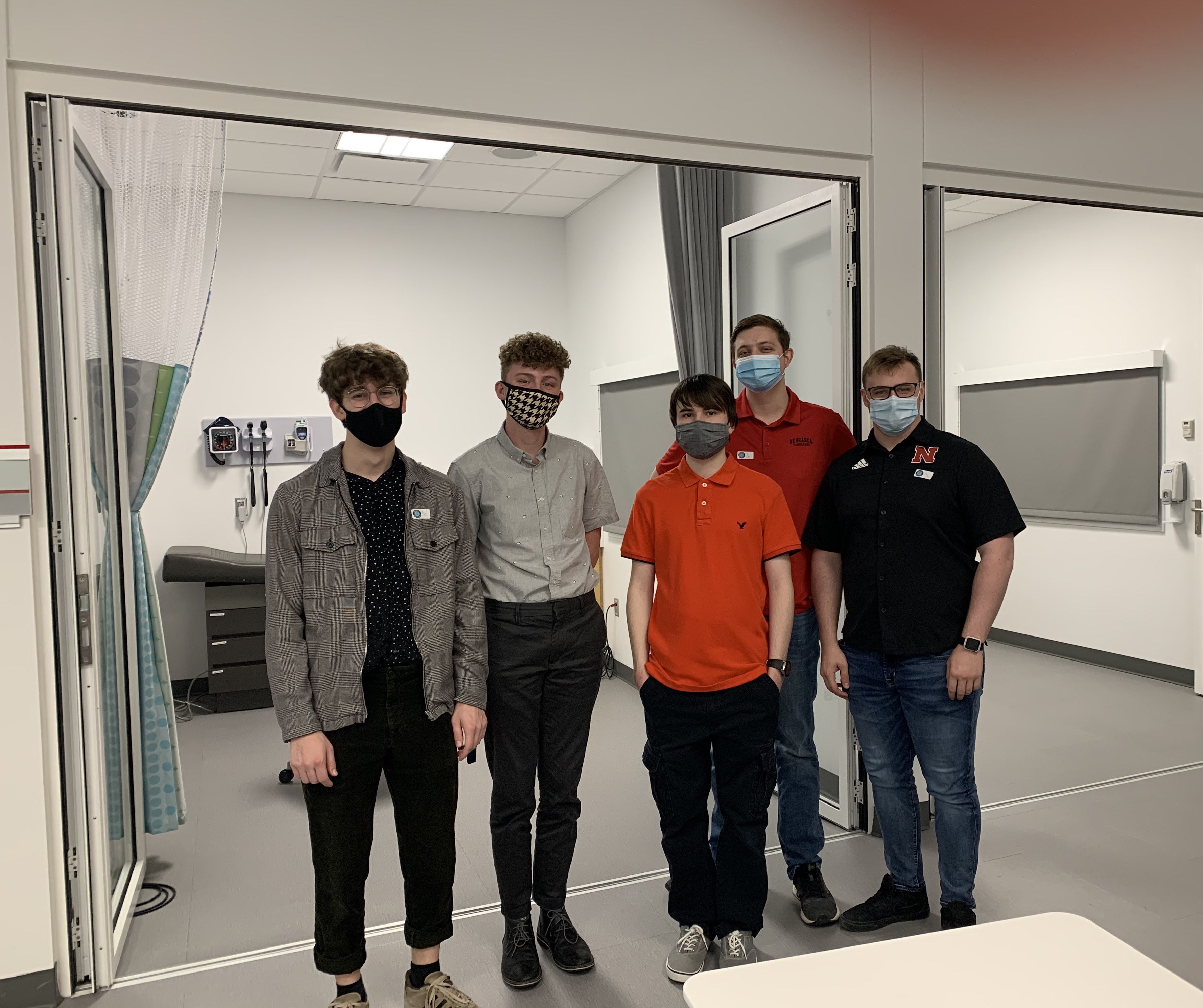Apr 28, 2021
By Victoria Grdina

A University of Nebraska–Lincoln team is collaborating on a new project that will help educate nurses about risks and healthcare in the state’s agricultural communities.
The Computer Science and Engineering Senior Design team is working with members of the University of Nebraska Medical Center’s College of Nursing and College of Public Health with support from the Central States Center for Agricultural Safety and Health (CS-CASH) to develop a virtual reality game that will simulate tractor driving and teach users how to operate farming vehicles safely.
The game allows users to drive around a virtual farm on a tractor and complete objectives while trying to avoid a rollover. Users can explore, learn about various aspects of the farm, or even play mini games that involve collecting coins or racing cows. In the event of a rollover, the game tracks user actions, identifies which ones were responsible for the crash, and explains how future accidents could be avoided.
The National Agricultural Tractor Safety Initiative reports that tractors cause approximately 50 percent of all farmer deaths and 130 deaths annually, making it the biggest cause of farm-related deaths each year. Tractor rollovers also make up 44 percent of all farming accidents.
“Agriculture has an occupational risk eight times higher than the average occupation, so in Nebraska, with its great agricultural history, it really is a big need,” said UNMC College of Nursing assistant professor Sue Schuelke.
Having had loved ones involved in tragic farming accidents, Schuelke and Michelle Ellermeier, a College of Nursing instructor at the UNMC College of Nursing in Kearney, decided to collaborate and examine ways they could better educate their nursing students on farming risks in order to improve care and prevent future injuries.
“When we looked at the literature, we could see there is a definitive gap—in graduating nurses and even in practicing nurse practitioners—in their knowledge of agriculture,” Schuelke said. “We have healthcare workers who have that gap in knowledge of the risk, and then we have a state that has high risk.”
Ellermeier said she believes this new technology will help nurses better understand the demands and practices of the agricultural field, which is a key part of providing quality care to farming patients.
“In our program, we talk about the impact of culture on health and learning, and how to see that as a provider,” Ellermeier said. “Farming has its own culture of putting work first, and providers really need to understand that when they have somebody come in with an existing injury, when they provide prevention education, and when they make realistic goals with patients.”
Creating this type of game not only required the Senior Design students to expand their VR knowledge, but also to learn a lot about farming and tractors. As they were beginning their project, the students paid a visit to the university’s tractor museum, where they studied research papers about tractor physics.
“I think our biggest challenge so far has just been grappling with implementing the vehicle physics and then applying them to the tractor,” development manager Jaden Goter said. “Getting the tipping to work was very difficult, but it's been very fulfilling, and we’ve learned a lot.”
Schuelke hopes that the game will be a helpful educational tool for nurses as well as other healthcare professionals and members of the community. The game will be integrated into UNMC’s nursing curriculum and showcased at various midwestern conferences where it will be available for play to agricultural workers and children.
“Our goal is not only to educate the nursing students, but also to have the nursing students help educate the public,” Schuelke said.